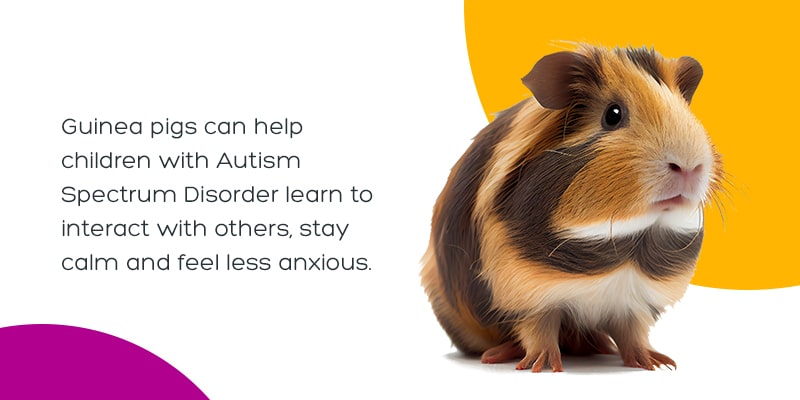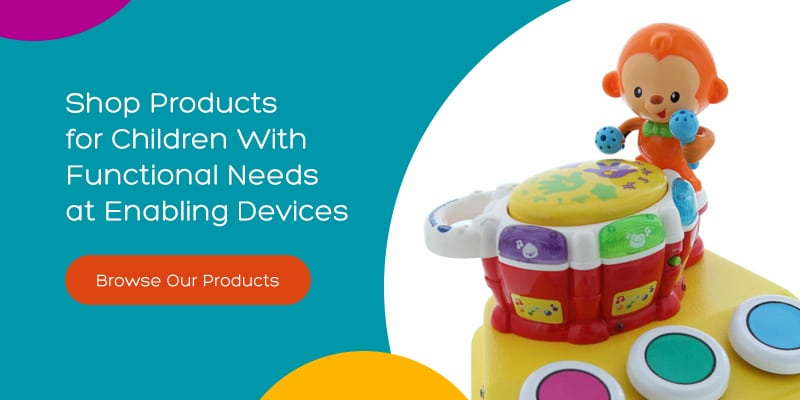Pets can be a wonderful addition to your family, especially if you have a child with special needs. When your child bonds with and helps care for an animal, they learn responsibility and empathy and receive comfort and love in return.
Deciding how to pick the best pet for your child with disabilities can be challenging. The type of pet you welcome into your family will depend on your child’s capabilities and activity level.
Tips for Choosing the Right Pet for Your Child
Adopting a pet is a big responsibility, so make sure you have the right reasons for doing so. With that in mind, introducing a pet into your family offers many benefits for a child with disabilities. A pet can:
- Promote physical activity.
- Improve sensory-motor skills.
- Encourage connections and socialization with others.
- Manage stress and provide a calming effect.
- Reduce heart rate, blood pressure and anxiety.
- Boost mood.
- Teach responsibility.
When deciding if getting a pet is right for your family, consider these questions:
- Can my child handle and play with a pet safely?
- Does my child have any allergies to pets?
- Who will care for the pet — my child, myself or both?
- If my child will work toward caring for the pet, am I willing to train and supervise the pet until my child can?
- If my child cannot care for the pet, am I able to?
- How much will it cost to adopt, train, raise and teach my child to interact with and care for the pet?
- Can I provide the time and resources necessary to take care of the pet in the short and long term?
Before choosing a type of pet, your family should think about these factors:
- Your child’s behavior, needs and maturity
- Allergies in the household
- Your lifestyle
- Your budget
10 Best Pets for Families With Special Needs Individuals
Once your family has committed to adopting a pet, it’s time to choose. Each type of pet offers benefits and drawbacks and will work best in different situations.
What is the best pet for a child with a disability? Consider if any of these pets would make great companions for your child.
1. Cat
Cats are a popular pet for many families. Our feline friends have many therapeutic benefits and can even be trained to be therapy animals. Cats enjoy playing, grooming and petting and can easily bond with their owners. Your responsibilities are minimal as they are easy to clean up after.
Each cat has a unique personality, so some are more friendly and tolerant of children than others. Cat dander can bother those with allergies, and most cat food contains peanuts, another major allergen.
2. Dog
Dogs are man’s (and woman’s) best friend, offering unconditional love and close companionship. You can easily train your dog, and this pet may encourage your family to play and exercise. Dogs can also be service animals or therapy animals for children with Autism Spectrum Disorder.
The breed of your dog is an important factor. Choose a kid-friendly breed that will tolerate being around children. Some breeds can be high-maintenance and must be walked several times a day or groomed often.
3. Fish
A fish is a great choice for a starter pet since they require minimal maintenance. For instance, the betta fish needs only a tank and food to thrive. Watching the fish swim around can also have a calming effect.
A fish makes a good pet for children with sensory sensitivities since fish don’t make sudden loud noises. However, they may not be the best pet for children who are hyperactive, have a disruptive behavior disorder or want to snuggle.
Fish have a short life span. You may have to replace your fish every few years, and the fish tank can take up a lot of room.
4. Leopard Gecko
The leopard gecko is one of the more popular pet reptiles. They have a calm nature and grow no more than 8 inches long. Geckos like to be held and do not bite, so they are safe for young kids. This pet is also low-cost and low-maintenance.
The leopard gecko has a life span of up to 20 years, making this animal a long-term commitment. They are sensitive to temperature changes, so you may need to buy a heat lamp to keep your pet comfortable.
5. Guinea Pig

Guinea pigs are social animals that love when their owner holds, pets and plays with them. Guinea pigs can help children with Autism Spectrum Disorder learn to interact with others, stay calm and feel less anxious.
You may consider adopting two guinea pigs since they can become depressed when living alone. This factor may be an advantage or disadvantage, depending on how many pets you are willing to adopt.
Guinea pigs are more high-maintenance than other furry friends. Their cage requires daily cleaning and must stay shut.
6. Rabbit
Rabbits are cute furry friends to welcome into your family. Many children find watching and petting a rabbit soothing. Rabbits are also easy to care for and clean up after.
Like their guinea pig cousins, rabbits are social animals and prefer to have a companion. Consider adopting two rabbits to keep your pets happy and healthy.
Rabbits will chew on anything they can get their teeth on, so you should monitor your pet when they’re outside their cage. Rabbit dander is also a common allergen.
7. Hamster
Hamsters are similar to guinea pigs, with a few key differences. Hamsters are smaller, meaning their habitat size and food needs are lower. This pet is also low-maintenance. You’ll need to clean the cage every two weeks.
Unlike guinea pigs, hamsters are less social and may not enjoy your child holding or playing with them. Some hamsters can bite. They also have a short life span of about two years.
8. Rat
Rats are loving, playful and curious pets that can help children engage and be social. This pet is affectionate and can become attached to its owners. Some rats even like riding around on their owner’s shoulders. This animal is also quite intelligent and can be trained.
Rats are high-maintenance animals that must get a lot of attention from their owner to prevent depression. Some people are afraid of rats, so make sure your child is comfortable around these rodents before adopting one.
9. Parakeet
Parakeets are beautiful birds with brightly colored feathers. They are smart and can be trained to do specific things. Since parakeets are small, they make a great pet for households with minimal space. Since they make a lot of noise, there may be better pet choices for children with sensory sensitivities.
Since parakeets are social, they are happiest in a pair. Decide if you want to adopt two parakeets instead of one. Parakeets cannot be snuggled and may bite. You will also need to clean their cage every day.
10. Slider Turtle
A slider turtle is a semiaquatic reptile and one of the most common pet turtle species. They are quiet with no allergens. Turtles are easy to provide for with low-cost veterinary needs and food options.
Slider turtles are not snuggly and cannot be petted or held. You will need to clean their tank frequently, which can be a smelly task. Since they grow up to 11 inches long, you may need to purchase a larger tank in the future.
Shop Products for Children With Functional Needs at Enabling Devices
Enabling Devices works with teachers, physical therapists and parents of children with functional needs to help them participate in the world. We have many animal-themed toys and devices, including:
- Elliot the Elephant that sings a song and moves its ears with or without a capability switch to teach cause and effect
- Music and Light Caterpillar that plays songs to increase auditory and language development
- Baby Monkey Drum that teaches animals, colors and animal sounds while playing music
- Fish and Glow Spinner that has swimming fish, swirling colors and music to increase visual attention
Shop online today or contact us for more information about our products. Browse the Enabling Devices blog for more helpful resources.



